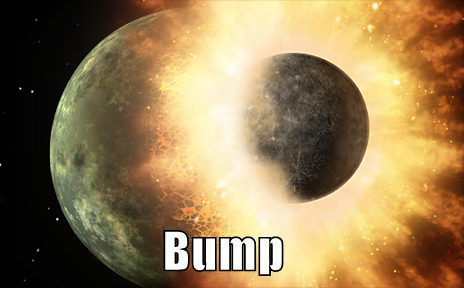FBM wrote:To the point that they've deleted the word "communism" from their constitution. They don't really have any idealism except for the superiority of the Korean race, but even that is a smokescreen for the comfort of the latest Dear Leader and his minions.Coito ergo sum wrote:I think North Korea took Orwell's 1984 as a dare. It is communism done to perfection.FBM wrote:
Fair enough. If I think of the sheer stress and anxiety of day-to-day living for the average citizen of a particular country, my best guess to date would be N. Korea. Am open to new information, of course. But, fuck. N.K. has gotta be way up there.
http://www.slate.com/articles/news_and_ ... _1984.htmlActually, North Korea is rather worse than Orwell's dystopia. There would be no way, in the capital city of Pyongyang, to wander off and get lost in the slums, let alone to rent an off-the-record love nest in a room over a shop. Everybody in the city has to be at home and in bed by curfew time, when all the lights go off (if they haven't already failed). A recent nighttime photograph of the Korean peninsula from outer space shows something that no "free-world" propaganda could invent: a blaze of electric light all over the southern half, stopping exactly at the demilitarized zone and becoming an area of darkness in the north.
Concealed in that pitch-black night is an imploding state where the only things that work are the police and the armed forces. The situation is actually slightly worse than indentured servitude. The slave owner historically promises, in effect, at least to keep his slaves fed. In North Korea, this compact has been broken. It is a famine state as well as a slave state. Partly because of the end of favorable trade relations with, and subsidies from, the former USSR, but mainly because of the lunacy of its command economy, North Korea broke down in the 1990s and lost an unguessable number of people to sheer starvation. The survivors, especially the children, have been stunted and malformed. Even on a tightly controlled tour of the place—North Korea is almost as hard to visit as it is to leave—my robotic guides couldn't prevent me from seeing people drinking from sewers and picking up individual grains of food from barren fields. (I was reduced to eating a dog, and I was a privileged "guest.") Film shot from over the Chinese border shows whole towns ruined and abandoned, with their few factories idle and cannibalized. It seems that the mines in the north of the country have been flooded beyond repair.
In consequence of this, and for the first time since the founding of Kim Il Sung's state, large numbers of people have begun to take the appalling risk of running away. If they make it, they make it across the river into China, where there is a Korean-speaking area in the remote adjoining province. There they live under the constant threat of being forcibly repatriated. The fate of the fugitive slave is not pretty: North Korea does indeed operate a system of camps, most memorably described in a book—The Aquariums of Pyongyang, by Kang Chol-Hwan—that ought to be much more famous than it is. Given what everyday life in North Korea is like, I don't have sufficient imagination to guess what life in its prison system must be, but this book gives one a hint.

